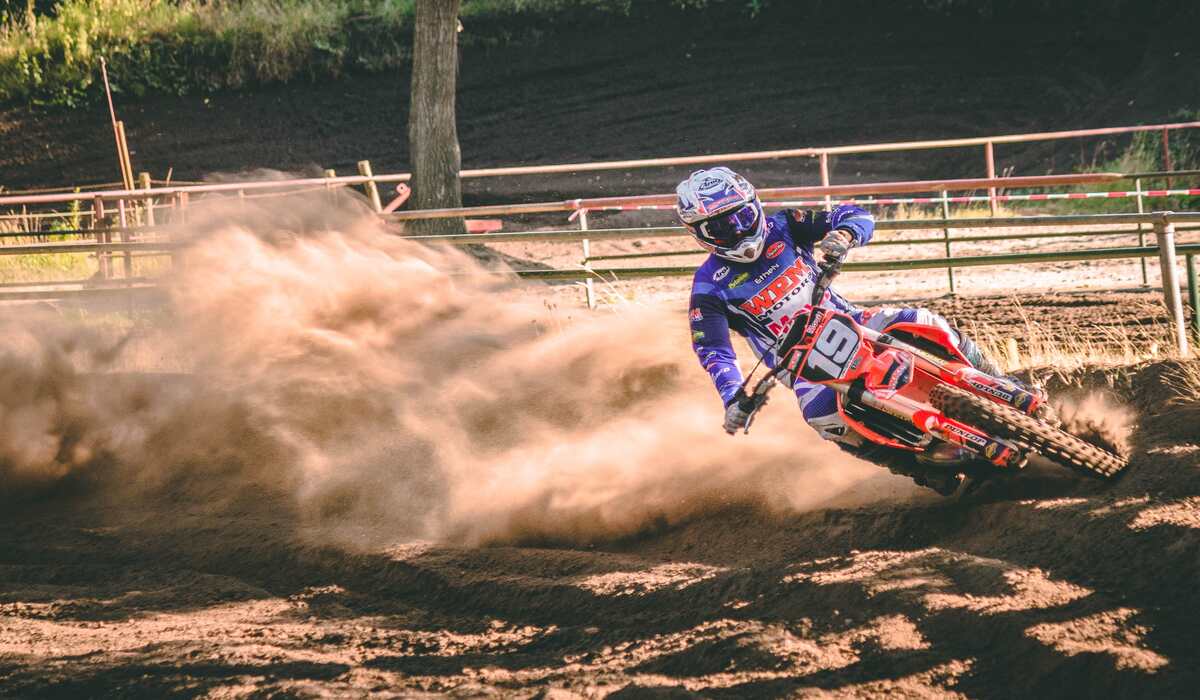Table of Contents
People love the sense of freedom they get while riding a motorcycle, but accidents can happen. When they do, they can cost a lot of money, be extremely stressful, and cause harm or disability. Do you know what to do if you’re in a motorcycle accident? Your conduct right after a collision determines how things will turn out. This article explores what to do after a motorcycle accident so you can be better prepared (if that day ever comes).
Safety First
Your safety is the most vital thing after having an accident. Most likely you’ll be running on adrenaline and be somewhat confused after the crash. Many riders will become concerned about their bike; however, it’s best not to touch, move, or pick up any broken parts from their motorcycle. You’ll have to remove yourself from the crash scene to avoid further injury or accidents. It can be hazardous to your health to try and move your bike when you haven’t been medically assessed yet. You don’t want to hurt yourself more than you might already be.
It’s also recommended that you keep your motorcycle attire on. After a crash, riders will want to take off their helmet, gloves, or boots, but doing so can lead to harmful neck, head, and spine injuries. The rush of adrenaline you’re experiencing will be covering up how seriously you’re hurt. The correct thing to do is avoid moving too much and be in a safe area until paramedics arrive.
Call for Help
If you’re able to, call emergency services, or have someone do it for you as soon as possible after the accident. People tend to react slower in stressful situations. If you require someone’s help, be very specific and clear to them.
Many apps will communicate an alert to your important contacts, and emergency services directly following a motorcycle accident. Normally, motorcyclists will have an information card that tells people who their emergency contacts are as well as pertinent personal and medical information. Some mobile apps even share data about your location, records of your trip, and medical information that needs to be provided. After a bad accident, you might not be conscious. That still doesn’t mean you can’t be prepared.
Many people will go into a type of shock, may it be physically or emotionally. During this time, try and stay as calm as possible. While you wait for help to arrive, make some mental notes if you can. Go over what happened and how you’re currently feeling so you’ll be prepared to impart this information to medical staff and the police.
Collect Documentation
For insurance companies and legal things, collect as much evidence as possible. If you physically can’t do it, ask someone who is helping you to take photos and videos of the crash site. Essential things to include in this documentation are what your bike looks like, the vehicle or thing that crashed into you, and road signs, skid marks, and hindrances. If you’re lucky, a passerby might have caught something on their car camera about the accident.
Police, Legal, and Medical Help
Assist the police as best as you can. They will want to get a statement from you at the accident site or where you’re recuperating. Being transparent is crucial, but don’t acknowledge fault before you’ve been able to think through the accident and speak to your insurance provider and lawyer. The evidence that you collected at the scene of the accident will typically be given to the police.
Legal help might be the case if there was serious harm done. Many times, lawyers will communicate on your behalf to the insurance company, and if there’s another party involved,so they can put the case to rest.
If you’re injured in an accident, listen to the doctor who treats you. They will have instructions on how to heal and suggestions for rehabilitation. Follow the dosage for your medication carefully, do prescribed procedures, and don’t miss any follow-up appointments.
Prevention is Key
Some accidents are unavoidable, but there are some safety tips on how to decrease your chances of getting into a motorcycle collision. Be diligent when on the roadway.
- Adhere to the speed limit and other roadway signs.
- Keep enough distance between you and the next vehicle.
- Don’t drive under the influence (or if you’re too tired).
- Refrain from riding in extremely bad weather.
- Drive at your skill and comfort level. Not Beyond.
- Wear protective gear (helmet, gloves, thick or padded clothing) even if the State you’re in doesn’t require it.
In Conclusion
After a motorcycle accident, if your bike is totaled, you may need to look at purchasing a new motorcycle, which means you will need to visit a motorcycle dealership. When you visit the motorcycle dealership, you will likely find that the motorcycles on the lot have license plates installed which are custom-printed with the Motorcycle Dealership’s name, logo, and contact information. These personalized plates are used as a promotional tool for the dealership. If you operate a motorcycle dealership and are looking to purchase Custom Printed Motorcycle License Plates, consider MBR Marketing: https://mbrmarketing.com/dealer-identification/custom-license-plates/custom-motorcycle-license-plates.
Motorcyclists know that unfettering feeling whenever they hop onto a bike. Yes, the ride is exhilarating, but some risks come with it as well. You can decrease the chance of accidents through preparation, training, quality gear, and gadgets. Although, with anything in life, common sense and excellent safety decisions will help you the most.
Photo by: Unsplash


